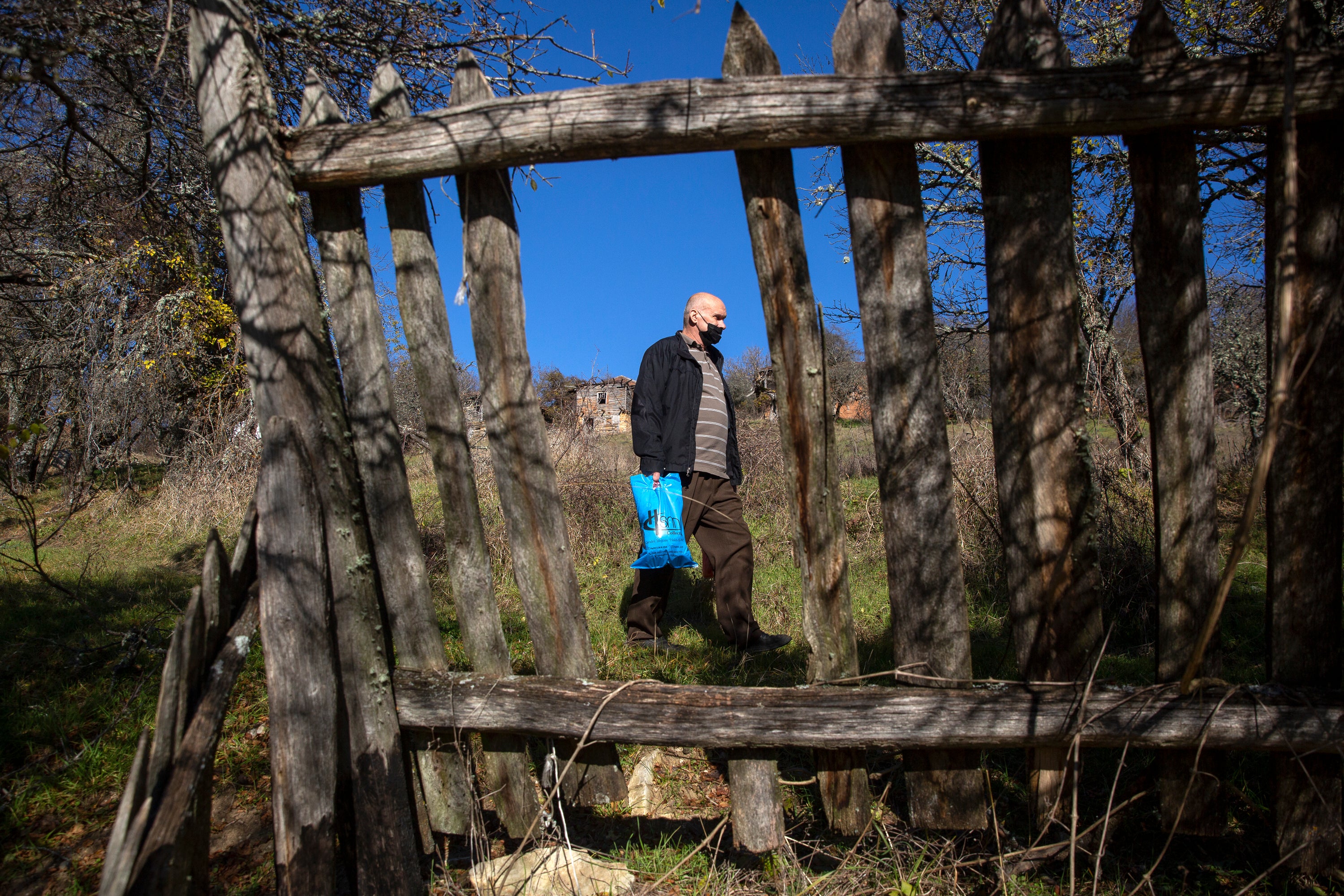Kosovo ethnic divide eases as Muslim cares for elderly Serb
Blagica Dicic, 92 and in failing health, is the only resident of a remote ethnic Serb minority village in the mountains of eastern Kosovo that’s been abandoned by all its other inhabitants — even her own children

Your support helps us to tell the story
From reproductive rights to climate change to Big Tech, The Independent is on the ground when the story is developing. Whether it's investigating the financials of Elon Musk's pro-Trump PAC or producing our latest documentary, 'The A Word', which shines a light on the American women fighting for reproductive rights, we know how important it is to parse out the facts from the messaging.
At such a critical moment in US history, we need reporters on the ground. Your donation allows us to keep sending journalists to speak to both sides of the story.
The Independent is trusted by Americans across the entire political spectrum. And unlike many other quality news outlets, we choose not to lock Americans out of our reporting and analysis with paywalls. We believe quality journalism should be available to everyone, paid for by those who can afford it.
Your support makes all the difference.Blagica Dicic, 92 and in failing health, is the only resident of a remote ethnic Serb minority village in the mountains of eastern Kosovo that's been abandoned by all its other inhabitants — including her own children.
Djordje, the eldest son, has moved to Serbia s capital, Belgrade, and has no room for her. She can't remember when they last met.
The younger son, Slobodan, lives in council-provided housing in nearby Kamenica town with his paralyzed wife. He rarely visits Dicic.
But now, she feels she's got a new son. It's all the more remarkable because Fadil Rama, 54, comes from the other side of Kosovo's bitter ethnic divide being a member of Kosovo's ethnic Albanian majority and a Muslim.
“I have three sons, not two,” she says, lying in bed with two blankets to cover her in her tiny home in Vaganesh village, 45 kilometers (30 miles) east of the capital Pristina.
“Fadil is the other one, bringing me food and taking care of me,” she says, leaning on one elbow as she caresses Rama, who lives less than a mile away in the ethnic Albanian village of Strezovce.
Until early November, Dicic enjoyed good health but has now grown weaker and has difficulty standing. Still, she refuses to move out of her dilapidated two-storey home, surviving on a 60-euro ($71) monthly pension and no other official support.
It's one of about 50 stone-and-wood-built houses that are slowly collapsing from neglect.
Before the 1998-1999 war, more than 200 people lived there. Now they've gone, the last being Dicic' son Slobodan, when his wife fell ill three years ago.
The war in the former Serbian province killed more than 10,000 — mostly ethnic Albanians — and ended after a NATO bombing campaign forced Serbia to withdraw its forces that were fighting an ethnic Albanian insurrection.
The United Nations ran the territory for nine years before Kosovo in 2008 declared independence, which Serbia doesn’t recognize. Relations between Belgrade and Pristina remain tense.
Rama, who owns a small grocery shop, has known Dicic since he was a boy and she always had a gift of sweets for Strezovce's children, even during the fighting.
“She has been such a good woman before, during and after the war and has treated us like her children," he said. "When I learnt she remained alone I felt very sorry and thought of paying back her good deeds.”
“Belgrade’s or even Pristina’s politics are of no interest to us because we have always supported each other,” Rama said.
Since the coronavirus outbreak in March, Rama has visited her twice a week, bringing food.
He cleans her room as best he can, lights the stove and settles down to cook for her.
Rama said he saw nothing strange in helping an elderly, Orthodox Christian Serb. His fellow villagers agree.
“Why? For assisting an old lady? A Serb? So what?” two men in Strezovce responded together. “Good for him.”
Since the war, Vaganesh has had no drinking water. Dicic used to walk to Strezovce for water and essential supplies, but now she's too frail.
Rama says local shepherds who heard he's helping her have followed his lead, visiting Dicic regularly "to see how she is and bring water or anything else.”
He's given his word to Dicic' son, Slobodan, that he will “take care of her to the last minute of (her) life with all I have.”
“I will never leave her on her own,” Rama said.
___
“One Good Thing” is a series that highlights individuals whose actions provide glimmers of joy in hard times — stories of people who find a way to make a difference, no matter how small. Read the collection of stories at https://apnews.com/hub/one-good-thing